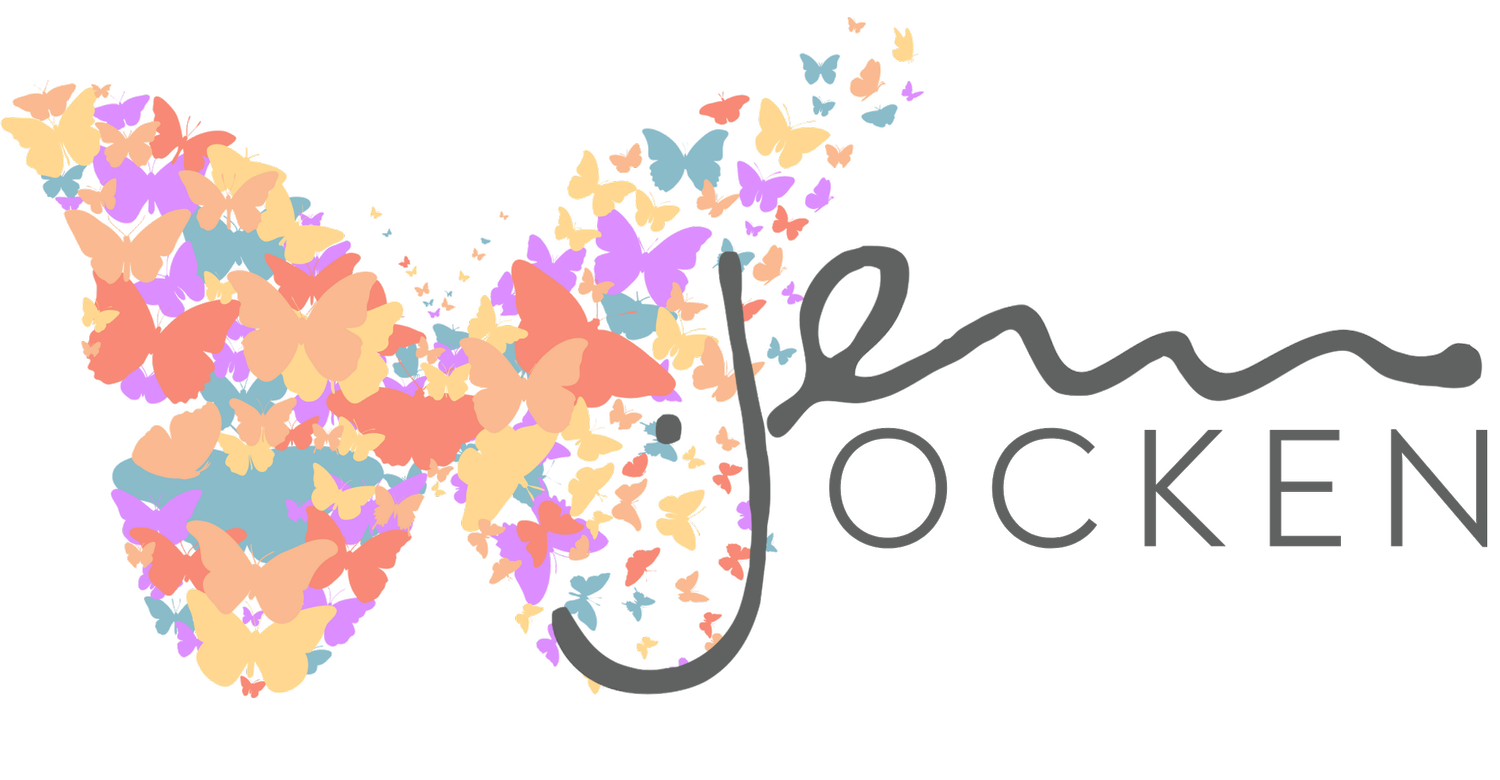Build Resiliency Not Resistance
A Reflection Exercise Overcoming Imposter Syndrome
Imposter syndrome. We’ve all felt it. That nagging doubt in the back of your mind that questions your success, your abilities, and your worthiness. Despite evidence to the contrary, it creeps in, making you feel like a fraud—like you don’t deserve the wins or recognition that come your way.
Have you ever felt the weight of imposter syndrome?
Let's talk about how Imposter syndrome often stems from internal doubts, but self-leadership is about taking ownership of your journey, your knowledge, and your unique perspective. When people are subconsciously living with imposter syndrome, they often have negative or self-doubting inner dialogues.
These thoughts can be subtle but are deeply ingrained in their mindset, undermining their confidence and abilities. Here are some common imposter syndrome sayings that many people tell themselves:
“I don’t belong here.”
They feel out of place, like they don’t deserve to be in the room, project, or role they’re in.
“I’m not good enough.”
This belief drives the feeling that no matter what they accomplish, it’s still not adequate.
“I’m just lucky.”
They attribute their success to luck or external factors, dismissing their own hard work or skills.
“Soon, they’ll find out I’m a fraud.”
There’s a constant fear that people will eventually realize they don’t know what they’re doing.
“I’ve just fooled everyone into thinking I’m competent.”
They believe their competence is an illusion and that others have been deceived by their appearance of capability.
“I can’t take credit for this.”
They hesitate to acknowledge their accomplishments, downplaying their role in successes.
“I don’t have enough experience to be doing this.”
They feel like they’re not experienced or qualified enough, even if they meet or exceed the qualifications.
“Anyone could have done this, I didn’t do anything special.”
They undervalue their unique contributions or skills, assuming anyone could have achieved the same result.
“I haven’t earned this.”
They believe they don’t deserve the success they’ve achieved, even if they’ve worked hard for it.
“What gives me the right to do this?”
They feel unqualified or question their legitimacy to be in a particular role or project.
“I shouldn’t speak up, someone more qualified should.”
They hold back from sharing their thoughts or expertise, assuming someone else has more authority or knowledge.
“I need to work even harder so no one finds out how much I don’t know.”
They push themselves relentlessly to prove they are deserving, even when unnecessary.
“I’m not smart/talented enough compared to everyone else.”
They constantly compare themselves to others and believe they come up short in comparison.
“I don’t deserve this recognition or award.”
They struggle to accept praise or accolades, feeling like they haven’t truly earned them.
“What if I fail and everyone realizes I’m not capable?”
The fear of failure looms large, reinforcing the belief that failure would reveal their supposed incompetence.
“If I ask for help, they’ll know I don’t have it all together.”
They fear that asking for assistance will expose their perceived inadequacies.
“I need to do more before I can consider myself successful.”
They move the goalposts for success, never feeling that what they’ve achieved is enough to feel legitimate.
“I haven’t really achieved anything yet.”
Despite tangible accomplishments, they feel like nothing they’ve done is truly significant or worthy of recognition.
These types of thoughts are rooted in the subconscious mind and are usually not verbalized, but they guide actions and reactions, making individuals with imposter syndrome feel less capable, even if they are highly skilled or accomplished. Over time, these internal dialogues can erode self-confidence, making it hard to acknowledge personal success and growth.When people are subconsciously living with imposter syndrome, they often have negative or self-doubting inner dialogues. But here’s the thing: imposter syndrome isn’t a sign of failure. It’s actually a sign that you’re pushing boundaries, challenging yourself, and growing.
What if, instead of seeing it as a block, you reframed it as a teacher?
In this reflection exercise, I want to help you move past the doubts and into a space of self-leadership, resilience, and empowerment. We’re going to explore the relationship between imposter syndrome and your unique journey, and how embracing your flow can lead to authentic, sustainable success.
Reclaiming Your Expertise
Self-leadership is about taking ownership of your story—recognizing that you are in control of how you perceive your successes, failures, and everything in between. Imposter syndrome often stems from internal doubts, but it’s time to flip the script.
Reflection:
What are three achievements you’re most proud of?
How do these achievements reflect your unique strengths?
Where are you currently underestimating yourself?
Write down these achievements and place them somewhere visible. Remind yourself daily that you earned these wins, and they reflect your skills, knowledge, and dedication. You are not a fraud; you are a leader in your own journey.
Building Resilience by Learning from Imposter Syndrome
Resilience isn’t about never doubting yourself—it’s about thriving despite those doubts. Imposter syndrome can be a powerful tool for reflection. It shows up when you’re leveling up or challenging yourself in new ways, which means you’re growing.
Reflection:
When was the last time imposter syndrome appeared in your life?
What was happening at that moment? What was the challenge you were facing?
How can you reframe that moment as a sign of growth, rather than a sign of failure?
Next time imposter syndrome creeps in, take a pause. Recognize what it’s telling you—that you’re stepping into something bigger. Write down the lesson that moment is offering you. By leaning into the discomfort, you’ll find resilience, not resistance.
Reclaiming Your Narrative
Empowerment comes from taking control of your narrative. You get to define what success looks like. Often, imposter syndrome stems from comparing ourselves to others or from external pressures to fit into a specific mold. But success is deeply personal, and your definition of it matters more than anyone else’s.
Reflection:
What is your definition of success?
How does it align with your core values and your unique vision?
What truth about yourself do you need to embrace to feel empowered when imposter syndrome strikes?
Write down three affirmations that reflect your unique strengths and truth. For example: “I bring value to every space I’m in,” or “I am prepared and capable of success.” When imposter syndrome shows up, revisit these affirmations and speak them aloud.
Here’s my story about imposter syndrome and resilience, written from my 2023 PechaKucha Talk.
Glass Half-Full: As a career photographer and entrepreneur who has always embraced a fluid life, many know that I am a "glass half-full" type of person who sees the world through silver linings. I lead a very self-directed life. In 2018, I would have told you how you could reach any goal and success in just a few steps. Now, I’ll tell you that the three-step processes are so 2018, and I am here to guide you on how to live your life on your own terms—helping you navigate the challenges we create for ourselves.
A Lesson in Humility and Hard Work: My journey into expanding my professional horizons began with the launch of Thriv, a creative business community aimed at nurturing others' talents. Envisioning myself as a fearless leader, I was determined to prove the skeptics wrong—particularly the biggest skeptic, myself, living with imposter syndrome.
Despite already succeeding in one area, I questioned: Why start something new? This phase turned into the most grueling work period of my life. I invested in coaches, marketing strategists, a web designer, and a podcast producer. The effort was immense, involving countless workshops, blogs, and live sessions. I was busy and also very confused.
Despite the energy I poured into creating and giving, the return was painfully absent. I felt like I was feeding a fire with endless enthusiasm, hoping to create a beacon for others. Instead, all I got was smoke—a thick cloud of imposter syndrome that obscured my vision and success.
Facing Burnout: Resources dwindled, and fatigue took over as I stared severe burnout right in the face. Frustrated and disillusioned, I poured what remained in my glass on the small flame of inspiration and redirected my focus entirely back to my photography business. This shift was deflating to my confidence but essential to recover both emotionally and financially from the time and energy I had poured into Thriv.
A Year of Unprecedented Challenges and Opportunities: Then came 2020, a year marked by global fear and uncertainty as the pandemic cast a shadow over the world. The familiar feelings of dread were overwhelming, but this time, retreat wasn’t an option. As we all faced stay-at-home orders, I contemplated my next move. Before I could make a decision, an unexpected opportunity arrived that would redefine my career and story.
A Pivot to Community Impact: Inspired by a project initiated by a photographer in Massachusetts, the Front Porch Project involved photographing families on their porches from the curb, encouraging them to donate to local businesses and charities in lieu of paying me. This project wasn't just a career pivot; it became a community lifeline.
I mobilized my network, calling on all connections to bring this project to life. The response was overwhelming, not just from families but from photographers and business owners alike. Together with 40 other photographers across Louisiana, we photographed over 4,000 portraits and injected an estimated $1.28 million back into our local economy.
When social distancing restrictions were implemented, I leveraged my expertise, fine-tuned the systems running my business, and harnessed the talents of my team to create a new approach that could meet the beautiful supportive demand from the community. This instinctive pivot allowed me to personally photograph nearly 900 families and 300 businesses—more than I had captured in the previous eight years combined.
Reflections on Growth and Gratitude: The success of the Front Porch Project taught me invaluable lessons about resilience, community strength, and the power of everything that prepared me to say yes to this project, never giving imposter syndrome a chance to hold me back. This initiative not only multiplied my livelihood but also reinforced the vital role of small businesses in our community, during a pandemic and beyond.
A Good Silver Lining: This experience has allowed me to revisit my original mission with Thriv, approaching it with a fresh perspective and renewed fire. The challenges of 2020, while daunting, brought unparalleled growth and satisfaction, reaffirming my commitment to being a creative force in the community.
Embracing the Silver Lining: As we move forward, I am reminded of the importance of adaptability and the sweet, savory joys of creative fulfillment. Saying "yes" to the Front Porch Project not only provided focus during a tumultuous time but also brought my efforts full circle, enhancing my mission to empower and inspire.
During what I like to call a “craptastic” 💩 time in my life, I relied heavily on my foundation to keep me focused and making the next best decision for myself and my livelihood—doing what I do best, holding my core values close, and prioritizing as each day started over with the uncertainty of what our future held!
Moving Beyond Imposter Syndrome
Let’s turn reflection into action. Here’s a simple plan to help you overcome imposter syndrome and move forward with confidence:
Reclaim Your Narrative: Identify three positive affirmations about your strengths and repeat them daily. Own your achievements.
Build Resilience: The next time imposter syndrome arises, ask what it’s trying to teach you. Use it as a growth opportunity.
Own Your Leadership: Align your goals with your core values. Reflect on your unique definition of success and trust that you’re on the right path.
YOU are the key to your success!
At the end of the day, the only common denominator in success is you. When you embrace self-leadership, resilience, and empowerment, you’ll move through life with more ease, more fun, and more confidence. There’s no one way to be successful—it’s about finding the path that feels authentic to you.
So, let’s break free from imposter syndrome. Let’s redefine what success looks like on our own terms. Let’s keep leaning into our flow, celebrating each step along the way, and most importantly—let’s lead with intention and authenticity.
Reflection Questions Recap:
Where are you currently underestimating yourself?
What does your imposter syndrome reveal about your current growth?
How can you reframe your imposter syndrome as a teacher, not a threat?
What truth do you need to embrace to feel empowered?
As you dive into these reflections, remember:
YOU ARE ALREADY ENOUGH.
The journey ahead is yours to lead, and I’m here to support you every step of the way. Let’s rise above imposter syndrome together and turn our visions into reality.
In conclusion, embracing the principles outlined in this post can lead to significant improvements in various aspects of life. By integrating these strategies, individuals can enhance their productivity, foster healthier relationships, and cultivate a more balanced lifestyle.
Remember, change is a gradual process, and staying committed to these practices will yield rewarding results in the long term. Moving forward, consider how these ideas can be tailored to fit your unique circumstances, ultimately guiding you toward a more fulfilling path.
Join the conversation in the ThrivUNITY chat, where we’re discussing imposter syndrome and how to navigate it with grace and confidence. Let’s talk about how you’re embracing your flow and redefining success on your own terms!



